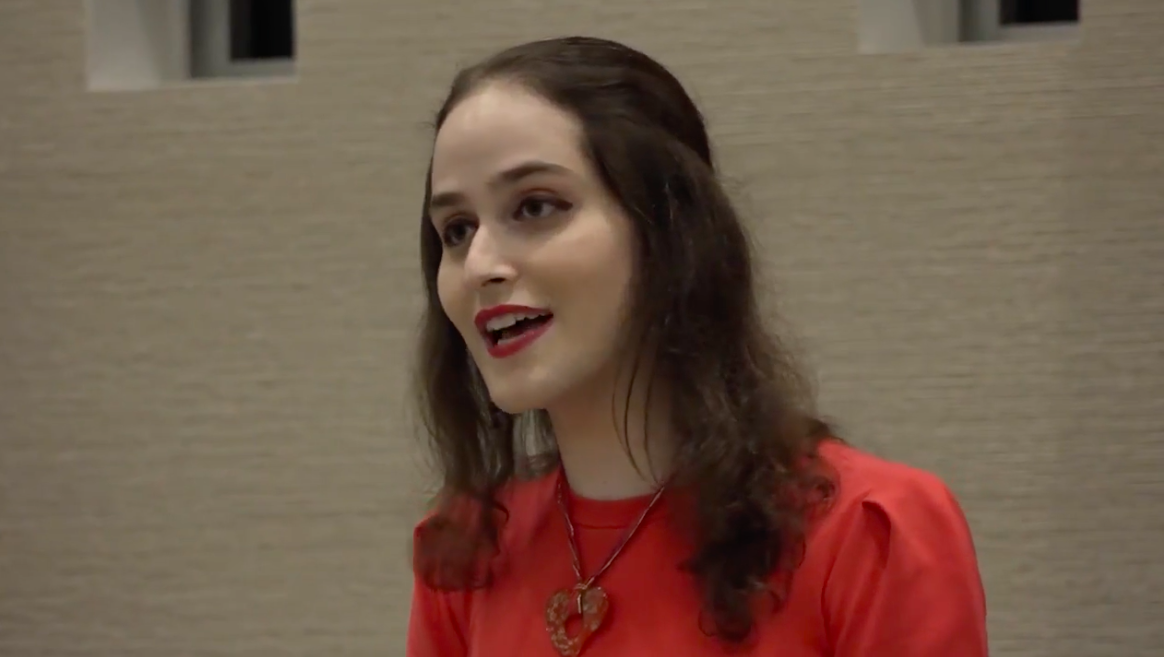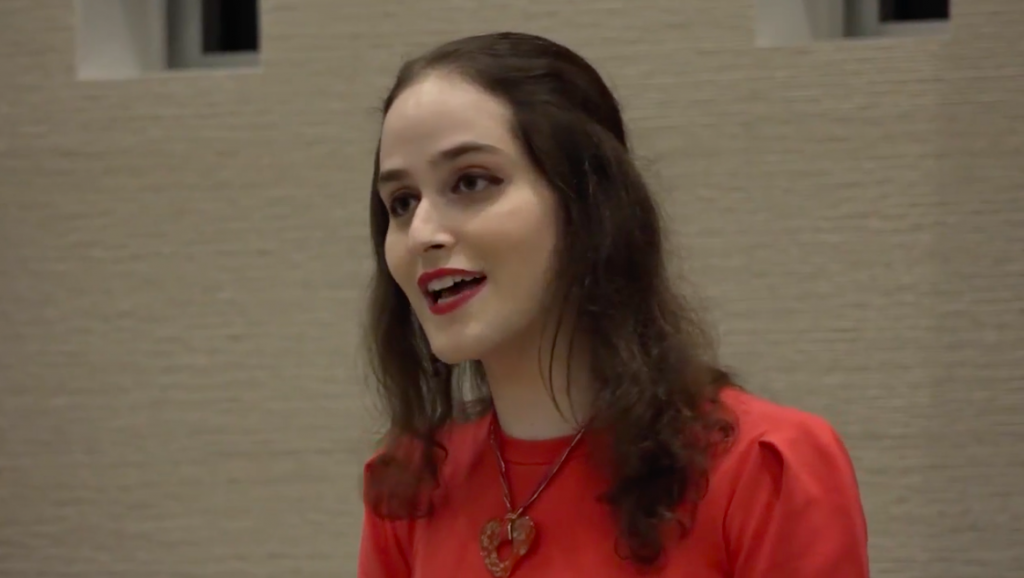

One year ago, the United States elected its 45th president, who would advocate for various policy changes affecting transgender people in America. Two years ago, Abby Stein was an ultra-orthodox rabbi struggling with her self-identity while living a secluded life that made finding the answers to self-acceptance and understanding more challenging. Now, she is a proud transgender woman.
“I am standing here … And I can’t believe that a year has passed,” Stein said. “A year has passed and fortunately … We have managed to put up a fight.”
Stein, 26, came to UM earlier this week to share her story of self-acceptance at an event hosted by UM Hillel as part of its empowerment series. Although the event was meant to be an open forum with opportunities for attendees to ask questions, the talk became increasingly political as Stein spoke about LGBTQ and women’s rights issues. Topics ranged from sexual assault and the #MeToo campaign to the need for anti-discrimination laws at a federal level.
Stein was raised in a Hasidic Jewish community, a conservative sect that shuns the modern world. She described it as growing up geographically in New York but culturally in a “pretend 18th century Eastern Europe.” Being cut off from the modern world meant that she had never been on the internet, only spoke Yiddish and was oblivious to the culture of television, movies and music with which people her age grew up.
For Stein, the way she felt – being a stranger in her own body – was something she did not understand. It wasn’t until she used the internet for the first time at 20 years old that she began understanding her gender identity.
Her road to self-discovery began when Stein typed, in Hebrew, “a boy turning into a girl” into Google. The search engine led her to a Wikipedia page about people who identify as transgender, a gender identity that differs from their assigned sex at birth. The web also led her to an anonymous online Israeli forum for the transgender community.
For the first time in her life, she did not feel alone.
On Nov. 11, she will celebrate two years of officially being Abby.
Stein’s life has changed in many ways, including divorcing her wife in 2013, leaving her family and the only community she had ever known. She also began furthering her education at Columbia University in New York. But despite these drastic changes in a few years, Stein said she is still the same person at her core.
“I was always a girl, that part hasn’t changed,” she said.
For Stein, the transformation she has undergone – externally as well as internally – has encouraged her to share her story. She shares it not for the sake of attention but bring light to the issues plaguing trans men and women around the world, she said.
In July, President Donald Trump announced his intention to prevent, or ban, transgender people from serving in the military. For Stein, the current stigma and political climate makes her message that much more important.
“The more important it is for us to shine that light,” she said. “The more hateful you are going to be, the more we are going to talk.”
Throughout the event, she emphasized her decision to “not shut up” in difficult conversations, and that sentiment was shared by many people in the room.
Jeremy Penn, a UM alumnus who identifies as transgender and attended the event, said Stein’s message resonated with her as one of visibility.
“Bang the pots and pans and say, ‘You’re not going to get away with ignoring this,'” said Penn, former president of SpectrUM.
Approximately 70 percent of people said simply knowing someone who is LGBT has helped make society more accepting, according to a 2013 Pew Research Center survey.
Rabbi Lyle Rothman, UM’s campus rabbi, said he was excited to hear Stein share her message, which he said comes down to “basic human rights and human dignity.”
“In light of what is going on in the world today, people are not treating each other with that dignity and respect, and they are not seeing that God-given spark in each person,” Rothman said.






